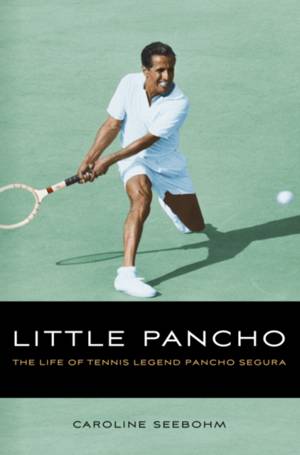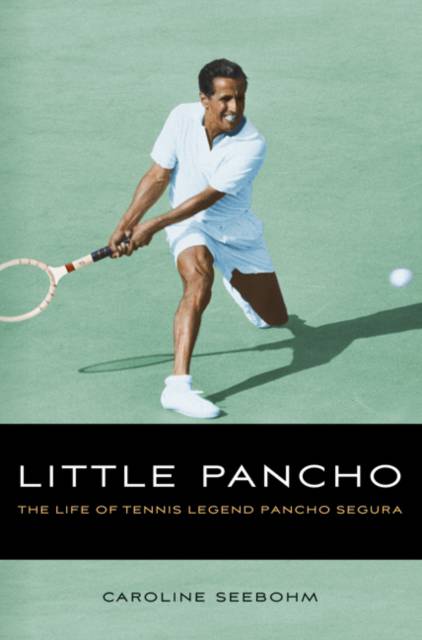
- Retrait gratuit dans votre magasin Club
- 7.000.000 titres dans notre catalogue
- Payer en toute sécurité
- Toujours un magasin près de chez vous
- Retrait gratuit dans votre magasin Club
- 7.000.000 titres dans notre catalogue
- Payer en toute sécurité
- Toujours un magasin près de chez vous
41,95 €
+ 83 points
Description
Born into a poor family in Ecuador, Pancho Segura was an undersized and undernourished kid working as a ball boy at an exclusive tennis club when he first picked up a racket. Little Pancho is the story of how this improbable athlete, with his bandy legs, infectious smile, and unorthodox two-handed style of play, became one of the greatest and most beloved tennis players of all time. During his twenty years in pro tennis, general audiences appreciated his spirit as a master entertainer, while tennis fans adored him. Drawing on interviews with many in the game who knew or admired Pancho, Caroline Seebohm provides a close-up picture of the unlikely pro as his career first emerged in Ecuador and then developed further in the United States during the 1940s, where he broke down social and political prejudices with his charm, naturalness, and brilliance on the court. Little Pancho follows Segura from the University of Miami, where he won three consecutive NCAA championships (still a record), to his time on the U.S. professional tennis tour. On the pro tour of that time, Segura and his fellow players struggled to earn a living and find acceptance in the traditional, sometimes elitist tennis world, which scorned "professionals" as outcasts. Little Pancho shows us Segura when he quit the professional tour to become a coach at the Beverly Hills Tennis Club, working with movie stars such as Charlton Heston, Barbra Streisand, and Lauren Bacall. And finally, we hear for the first time from some of the later champions Segura coached, including Jimmy Connors. This history of tennis in the midcentury also is the inspiring story of how one poor Latino kid, through sheer grit, grace, and talent, changed the face of the sport forever.
Spécifications
Parties prenantes
- Auteur(s) :
- Editeur:
Contenu
- Nombre de pages :
- 264
- Langue:
- Anglais
Caractéristiques
- EAN:
- 9780803220416
- Date de parution :
- 01-05-09
- Format:
- Livre relié
- Format numérique:
- Genaaid
- Dimensions :
- 145 mm x 216 mm
- Poids :
- 476 g

Les avis
Nous publions uniquement les avis qui respectent les conditions requises. Consultez nos conditions pour les avis.






